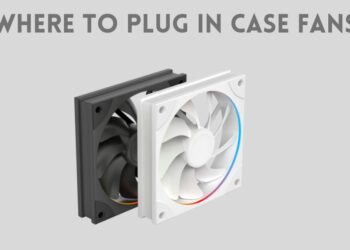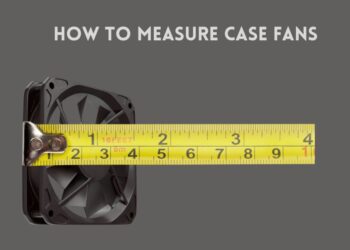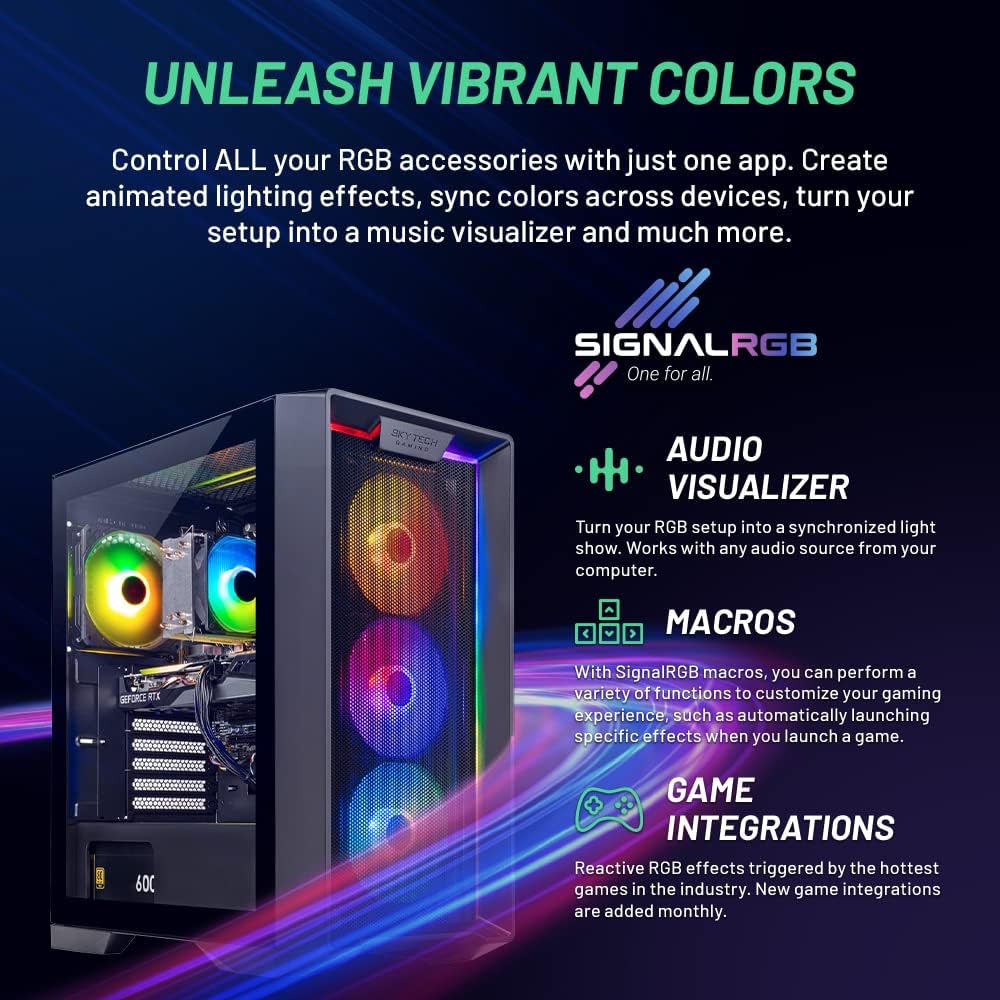When it comes to keyboards, there are mainly two types: mechanical and membrane. In this article, we’ll look at what makes these keyboards different from each other.
Mechanical keyboards are known for their strong, clicky keys. They are popular among people who type a lot or play video games. Membrane keyboards, on the other hand, are quieter and usually cheaper. They have softer keys and are common in many offices and homes.
We will explore how these keyboards work, how they feel when you type, and what makes each one good for different uses. Whether you use your computer for work, games, or just browsing the internet, knowing about these two types of keyboards can help you choose the best one for you.
Let’s dive in and find out more about mechanical and membrane keyboards!
Mechanical vs Membrane Keyboard: Quick Answer
Mechanical keyboards use individual Cherry MX switches under each key to provide tactile feedback and a satisfying typing experience. Membrane keyboards utilize a single rubber sheet with scissor switches to register key presses more quietly but with a “mushier” feel.
Mechanical keyboards excel in durability, customization, and performance but cost more. Membrane keyboards are affordable, portable, and quieter but lack the responsiveness of mechanical switches.
Mechanical Keyboards: Under the Hood
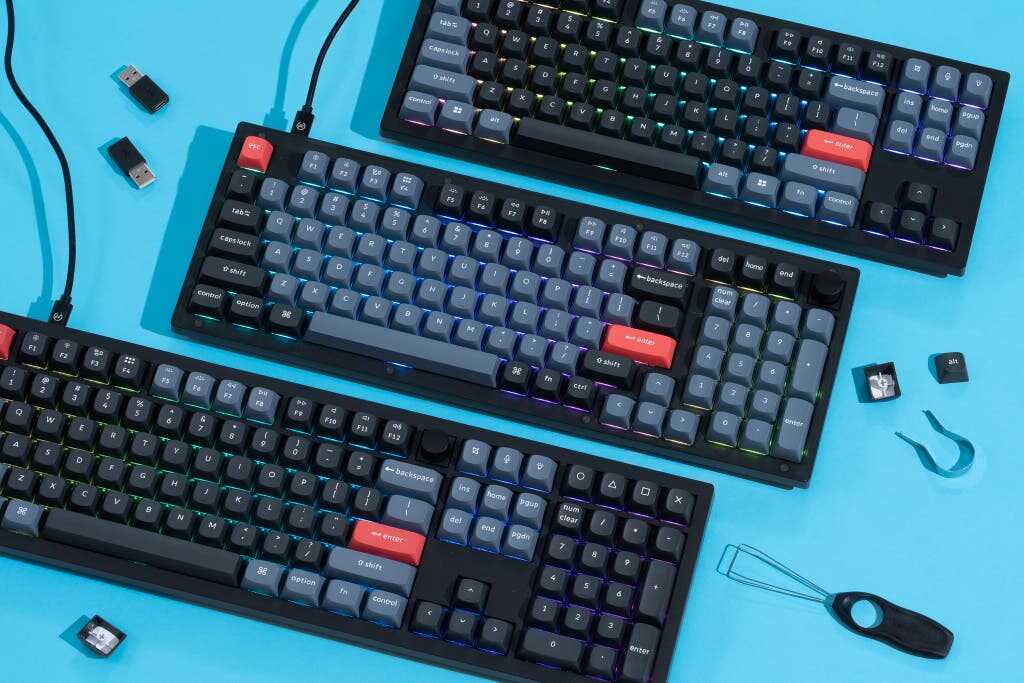
A mechanical keyboard gets its name from the fact that each key has its own independent Cherry MX style mechanical switch beneath it rather than the rubber membrane layer found in cheaper keyboards.
When you press down on a key, the internal spring-loaded switch activates and gives physical feedback that the key press has registered. Depending on the switch type, you may feel a tactile bump, hear an audible click, or experience smooth linear travel.
This switch mechanism makes mechanical keyboards more durable, responsive, and satisfying to type on compared to membrane keyboards. The switches are rated for at least 50 million keystrokes. With proper care, a quality mechanical keyboard can easily last over a decade of daily use.
Types of Mechanical Switches
There are several types of mechanical keyboard switches, each with distinct characteristics:
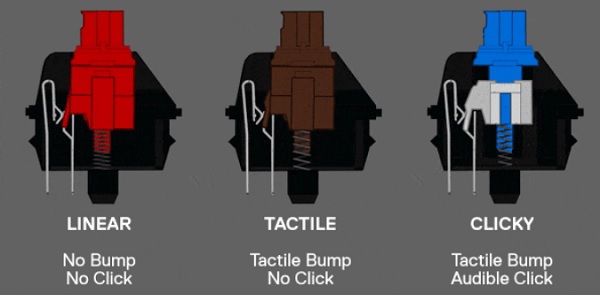
- Linear switches (like Cherry MX Red) have a smooth, continuous key press. They are quick and quiet. Ideal for gaming and fast typing.
- Tactile switches (like Cherry MX Brown) have a soft bump when actuating. Provides tactile feedback but without an audible click. Great for typing.
- Clicky switches (like Cherry MX Blue) have both a tactile bump and audible click. Offer the most feedback but can be noisy. Good for typists.
These switches let you choose your ideal tactile experience – from fast and silent to clicky and tactile. You can even mix and match switch types on a single keyboard.
Advantages of Mechanical Keyboards
Here are some of the biggest benefits of using a mechanical keyboard:
Superior Typing Experience
The tactile and audible feedback from mechanical switches makes typing more accurate, comfortable, and fast. You can feel and hear when a key actuates, reducing errors.
This also enables you to type faster once you get used to the key feel. The average typing speed on a mechanical keyboard is 5-10% higher than on a membrane keyboard.
Extreme Durability
Quality mechanical keyboards are built like tanks and can withstand decades of intense use. For example, the Cherry MX switches used in most mechanical keyboards are rated for over 50 million keystrokes per switch.
Compare this to membrane keyboards that last only around 5 million presses before keys start to feel mushy and unresponsive.
Customization Options Galore
From choosing your ideal Cherry MX switch type, custom keycaps, and cables to advanced RGB lighting – mechanical keyboards offer endless customization.
You can easily replace the keycaps with custom sets to change the look and feel. Swap switches if you want to try a new typing experience. Program macros, Layers, and complex lighting effects. The options are limited only by your imagination.
N-Key Roll Over
Most mechanical keyboards feature N-key rollover (NKRO) which allows any number of keys to be pressed simultaneously and still register accurately.
This is essential for fast typists who need to press multiple keys at once. It also enables complex keyboard shortcuts and combos in games without ghosting issues.
Easily Cleanable and Maintainable
Mechanical keyboards are designed to be fully serviceable. You can remove the keycaps to thoroughly clean the keyboard or replace worn-out switches.
Broken stabilizers, switches, and LEDs can be replaced instead of needing an entirely new keyboard. This repairability contributes to their longevity.
Read More: Keyboard is Making Noise when Typing: How to Fix it
Disadvantages of Mechanical Keyboards
While excellent for performance and longevity, mechanical keyboards do come with some downsides:
- More expensive – Quality mechanical keyboards cost $100 to $200 compared to $20 to $50 for decent membrane keyboards.
- Heavier and bulkier – The metal backplate, thick keycaps, and switches add weight. Not ideal for portable use.
- Can be noisy – Clicky and tactile switches produce noise which can disturb others in close environments. Linear switches are quieter.
For most enthusiasts and pro users, the advantages far outweigh these minor disadvantages. But membrane keyboards can be a better choice if you need an ultra-portable or silent keyboard on a tight budget.
Membrane Keyboards: Features and Technology
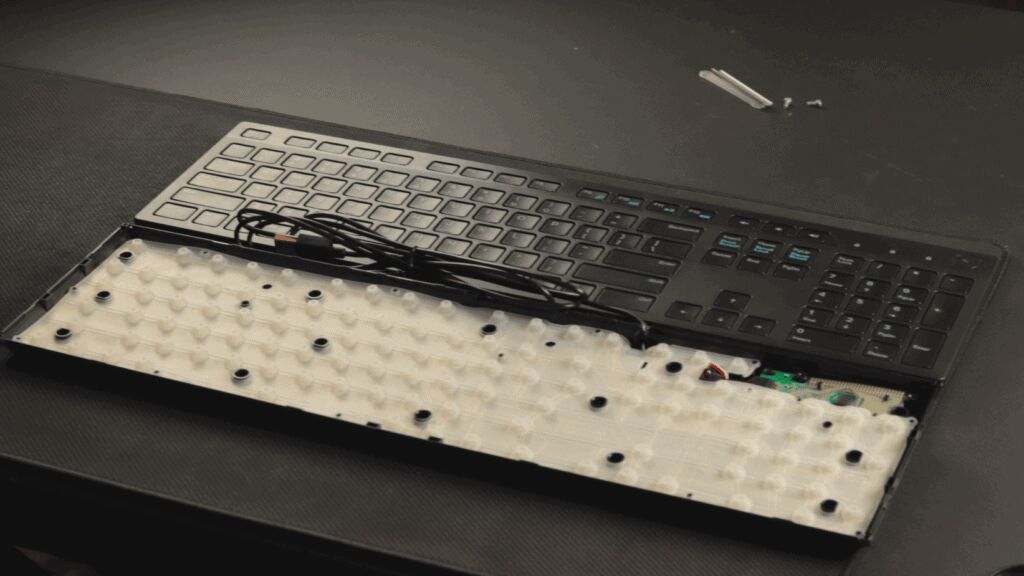
Membrane keyboards are the most common budget keyboard variety. Instead of individual switches, they use a layer of pressure-sensitive conductive material under the keys to register presses.
When you press a key, the conductive contacts under the rubber membrane touch and complete a keypress circuit. The membrane sheet returns to its original position once you let go of the key.
This membrane mechanism allows membrane keyboards to be affordable, slim, and quiet but lacks the tactile feedback of mechanical switches.
Laptops and low-cost keyboards almost universally use membrane technology for their slim form factor and low cost. Even premium laptops and many full-sized wireless keyboards employ improved scissor switch membranes.
Advantages of Membrane Keyboards
Let’s look at some benefits that make membrane keyboards popular:
Low Cost
You can get a functional membrane keyboard for as little as $10-20. The simple membrane design allows mass manufacture at a low cost. This makes them ideal for budget builds or office use.
Slim and Lightweight
Without bulky switches and backplates, membrane keyboards weigh around 1 lb (0.5kg) and are less than 0.5-inches thick. Great for portable and compact keyboards.
Quieter Typing
The rubber membrane absorbs noise, keeping key presses whisper quiet. Ideal if you need to type without disturbing coworkers or family.
Water Resistant
The tightly sealed membrane layer prevents minor spills from damaging the keyboard’s internals. Makes them suitable for use in kitchens or other areas prone to splashes.
Simple Plug-and-Play Use
Membrane keyboards just need a simple USB connection without needing special drivers or software. This makes them versatile across different devices and operating systems.
Disadvantages of Membrane Keyboards
There are some inherent weaknesses in the membrane design:
- Mushy feel – The soft membrane does not provide the crisp, tactile feedback of mechanical switches during typing. Keys feel mushy and indistinct after extended use.
- Prone to errors – It’s easier to make mistakes when typing on membrane keyboards due to the lack of tactile feedback. You can’t feel when a keypress registers.
- Shorter lifespan – The conductive membrane and contacts degrade after 5-10 million presses. Membrane keyboards deteriorate after a couple of years of daily use.
- No advanced features – Unlike mechanical keyboards, membrane types lack N-key rollover, programmability, switch choices, and customization options.
- Low-quality materials – Budget membrane keyboards often cut costs by using thin, cheap ABS plastic keycaps prone to fading and wearing out quickly with intensive use.
In summary, membrane keyboards trade away typing feel, longevity, and performance for affordability and portability. Let’s see how the two technologies stack up for specific uses.
Mechanical vs Membrane: For Typists
For writers, programmers, and others who spend hours typing daily, a mechanical keyboard is by far the best choice. Here’s why:

- Faster and more accurate – The tactile feedback allows faster typing with fewer errors. You immediately feel when a keypress registers instead of bottoming keys out.
- Avoids fatigue – Mechanical keyboards require less force and travel distance to type. The ergonomic design with 6-degree tilt angles and wrist rests prevents sore wrists and fingers during long typing sessions.
- Higher WPM potential – With practice, expert typists can achieve over 100 WPM on mechanical keyboards, versus around 80 WPM on most membrane types.
- Ideal for coding – The durability ensures millions of keypresses without issues. Macros, multiple key inputs, and complex shortcuts are easily executable thanks to NKRO.
- Satisfying experience – The pure joy of typing on clicky mechanical switches with custom keycaps is a bonus. Work feels less tedious when you enjoy using a well-crafted keyboard.
Writers and coders stand to gain the most productivity and ergonomic benefits from upgrading to a premium mechanical keyboard. The investment will pay for itself if typing is an integral part of your work.
Mechanical vs Membrane: For Gamers
Gamers were among the first adopters of mechanical keyboards back in the day. Let’s see why mechanical keyboards again win out for gaming purposes:
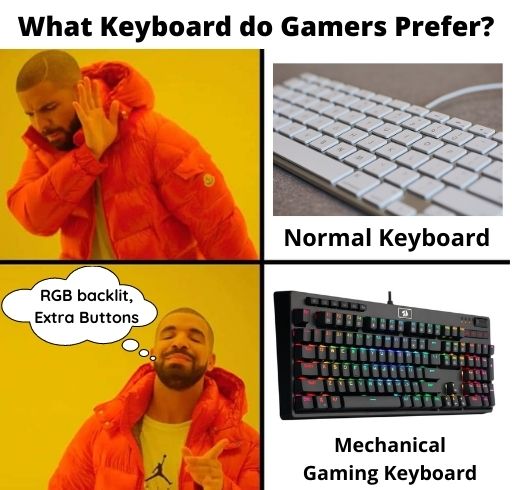
- Faster response – The actuation point on mechanical switches sits higher at 1.5mm-2mm. Keys register sooner with a shorter travel distance translating to faster in-game actions.
- Fewer errors – Missed inputs or accidental double keypresses are less common on mechanical keyboards. The audible and tactile feedback ensures every actuation registers accurately.
- Better durability – Gaming involves millions of repeated keypresses. Mechanical switches maintain their responsiveness for over 50 million clicks on average compared to just 5 million on rubber membranes.
- N-key rollover – Mechanical gaming keyboards allow multiple simultaneous keypresses thanks to NKRO. You can trust even complex combo moves will execute properly in games.
- Satisfying experience – From the first click of your gaming keyboard, you’ll notice how much more satisfying and responsive it feels for gaming sessions compared to mushy membranes.
While pro esports gamers take it to the extreme with hyperspeed switches and custom keycaps, even casual gamers stand to gain an edge from a basic mechanical gaming keyboard.
Mechanical vs Membrane: For the Office
In office environments like open workspaces, cubicles, and meetings, a membrane keyboard may be the more courteous choice for your co-workers. Here are some benefits:

- Whisper quiet – The noiseless membrane keyboards prevent disturbing colleagues, especially in close quarters. Mechanical clicks can be annoying in shared spaces.
- Better for quick meetings – Lightweight design allows easy portability and quick setup during meetings. Their slim profile also takes up less surface area.
- Affordable multi-user deployment – A business can outfit their entire office with basic membrane keyboards at a fraction of the cost of mechanical ones.
- Good enough performance – For simpler data entry and typing tasks, membrane keyboards provide adequate functionality at low cost.
However, for some office roles, a mechanical keyboard may still prove beneficial:
- Heavy typists – Writers, programmers, and fast transcriptionists will benefit from the increased speed, accuracy and comfort of mechanical switches.
- Client meetings – Impress clients with premium mechanical keyboards that exude quality and status if noise isn’t a big concern.
- Ergonomics – The upright tilt, wrist support, and responsive keys of the best ergonomic mechanical keyboards prevent repetitive stress injuries.
Evaluate your office environment and team needs to decide if a quiet membrane board or high-performance mechanical model is the optimal choice. The mix of both can suit some workspaces.
How To Clean Mechanical and Membrane Keyboards
Keeping your keyboard clean optimizes its lifespan and performance as well as prevents the spread of germs in an office. Here are best practices to clean both keyboard types:

Cleaning Mechanical Keyboards
Step 1: Unplug the keyboard and remove all keycaps. This gives full access to the switch housings.
Step 2: Use compressed air to blow away any loose debris or dust accumulated in the switches, stabilizers, and other nooks.
Step 3: Use a lint-free cloth or cotton swabs dipped in rubbing alcohol to gently clean the switch contacts, keycaps, and keyboard body.
Step 4: Wipe down with a microfiber cloth and leave keycaps to air dry for 10 minutes before replacing in the correct positions. Reapply lube if desired.
Cleaning Membrane Keyboards
Step 1: Unplug the keyboard and tilt it vertically to dislodge any loose crumbs or dust.
Step 2: Use a can of compressed air to blow out the loose debris now sitting on the keys and surface. Avoid blowing air directly on electrical contacts.
Step 3: Dilute some gentle dish soap like Dawn in warm water. Dip a soft microfiber cloth in the solution and wring it tightly.
Step 4: Gently wipe down the keys, being careful not to let any moisture drip between the keys onto the circuitry.
Step 5: Take a dry microfiber cloth and wipe the keys again to remove any residue. Let the keyboard dry inclined overnight before reconnecting.
With both keyboard types, avoid harsh chemicals, excessive moisture, and scrubbing that can degrade the materials. For electronics safety, always unplug and use short burst compressed air cans.
Key Considerations When Choosing a Keyboard
To decide on the best keyboard for you, keep the following factors in mind:
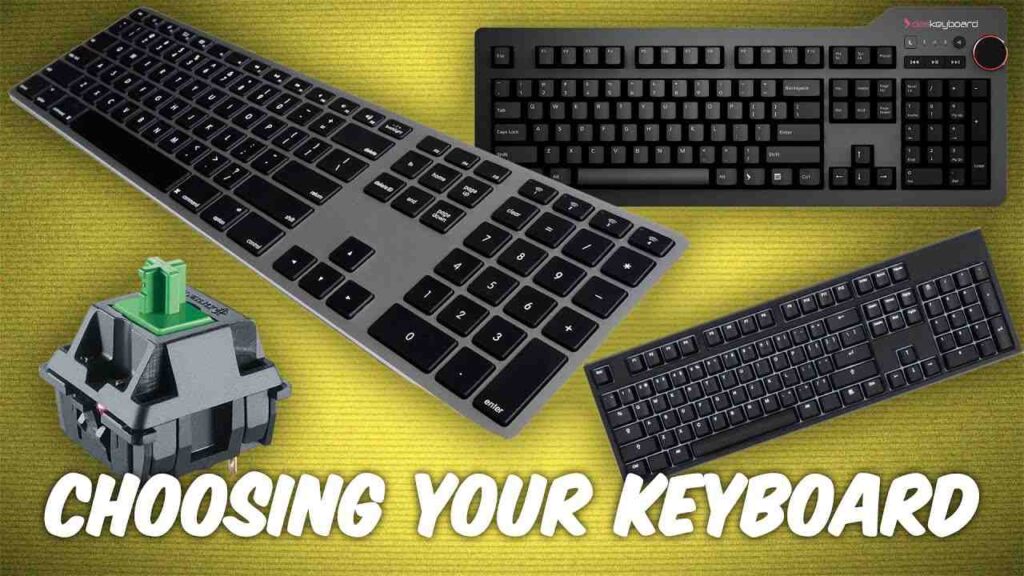
- Intended use – Gamers and heavy typists gain the most benefits from mechanical keyboards. Opt for membrane types for occasional use.
- Work/Home environment – If you share a workspace or need quiet operation, membrane keyboards are the silent choice.
- Budget – Quality mechanical keyboards cost more but also last longer. Membrane types are very budget friendly.
- Portability needs – Frequent transport and tight spaces favor the slim and light membrane keyboard design.
- User preference – Try different keyboard switch types in person to determine the tactile feel you find most comfortable.
- Features needed – Backlighting, programmability, macros etc require a more advanced mechanical keyboard. Basic membranes lack such features.
Carefully weigh your priorities to decide between the two technologies. Sometimes a hybrid membrane-mechanical model strikes the ideal balance for specific needs.
Conclusion: Which Should You Choose?
The choice between mechanical versus membrane keyboards ultimately depends on your requirements, priorities, and budget.
For serious typists, gamers, and power users needing advanced functionality, longevity, and performance – mechanical is the way to go.
For those wanting an inexpensive, slim, and simple keyboard for light home or office use – a basic membrane keyboard gets the job done on a budget.
Some roles like programming or gaming may benefit from a mechanical keyboard while data entry tasks are fine on a membrane. Trying different keyboard types can help inform your ideal switch feel and use case.
While mechanical keyboards excel at durability, customization, and responsiveness – membrane types win for affordability, slimness, and silence. There are valid scenarios to choose either for your needs.
Now that you know all the major differences between these two technologies, you can make an informed purchase decision. Just identify your priorities, try some keyboard samples, and choose the model with the right blend of features and performance for your workstyle.
You May Like:
FAQ’s
Are mechanical keyboards better for gaming?
Yes, mechanical keyboards are better suited for gaming purposes due to:
- More responsive switches
- N-key rollover enables combos
- Greater durability for rapid inputs
- More satisfying tactile feedback
Serious gamers strongly prefer mechanical keyboards for these performance benefits. However, casual gaming works fine on either keyboard.
Is a mechanical keyboard worth it for typing?
A mechanical keyboard is generally worth the higher investment for extensive typing due to:
- More accurate and faster input
- Tactile switches reduce fatigue
- Durable for millions of keystrokes
- Enhances the typing experience
For professional writers, coders, and other heavy typists, a quality mechanical keyboard boosts productivity and longevity.
Can you change keycaps on membrane keyboards?
Most membrane keyboards don’t allow replacing the thin ABS plastic keycaps since they clip or slot into the base. Custom keycaps won’t fit properly. Rarely, some membrane keyboards may use cross-shaped stems compatible with custom keycaps. But keycap customization is very limited.
Do mechanical keyboards make more typing mistakes?
No, the opposite is true. Mechanical keyboards reduce typing mistakes thanks to:
- Tactile feedback signals each letter
- Keys need total travel distance.
- No missed inputs from ghosting
You’re less likely to make errors on a mechanical keyboard once you adjust to the responsive key feel.
Does a mechanical keyboard improve WPM?
An average typer can expect to gain 5-10% higher WPM speed on a quality mechanical keyboard with practice. The tactile feedback enables faster typing while reducing errors that slow you down. Your skill still plays the major role, but mechanical switches optimize speed.
What is the lifespan of a membrane keyboard?
The lifespan of a membrane keyboard is approximately 5-10 million keystrokes. This is significantly lower than mechanical keyboards which can last over 50 million keystrokes. The soft rubber domes under the keys in membrane keyboards wear out over time.
Are mechanical keyboards louder than membrane?
Yes, mechanical keyboards are generally louder than membrane keyboards. The individual mechanical switches in mechanical keyboards produce an audible ‘click’ when actuated. Membrane keyboards have a rubber layer that absorbs sound, making them quieter.
Are membrane keyboards slower than mechanical?
Membrane keyboards can be slower than mechanical for a couple reasons. The soft rubber membrane requires pressing keys all the way down to register. Mechanical switches actuate partway through the press. Also, mechanical keyboards offer tactile feedback that supports faster, more accurate typing.
Are membrane keyboards softer?
Yes, membrane keyboards have a much softer, mushier feel compared to mechanical keyboards. The rubber membrane sheet under the keys absorbs the impact of pressing, resulting in a soft feel. Mechanical keyboards use rigid switches that have more resistance.
Are cheap mechanical keyboards better than membrane?
Generally, even budget mechanical keyboards under $50 provide a better overall typing experience than membrane keyboards. They offer more tactile feedback, greater durability, and a more premium feel despite the lower cost. However, extremely cheap mechanical keyboards may suffer on quality.





